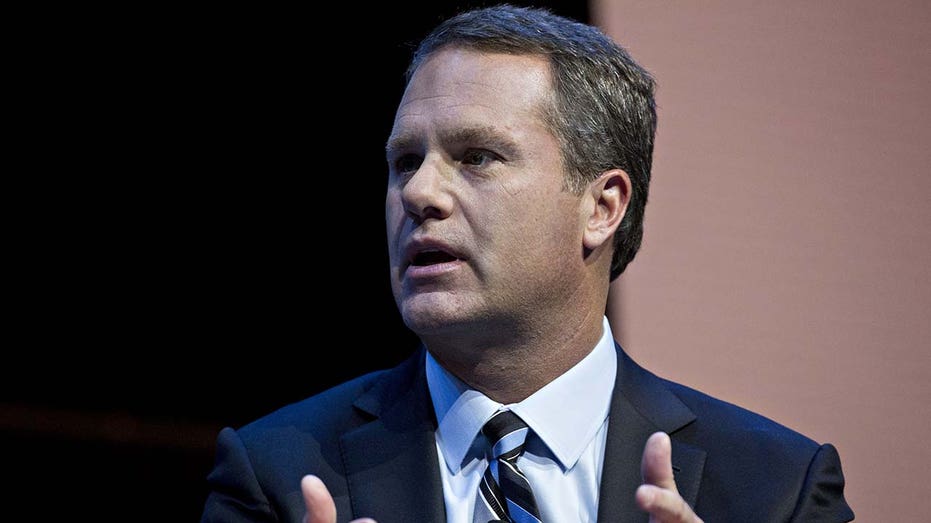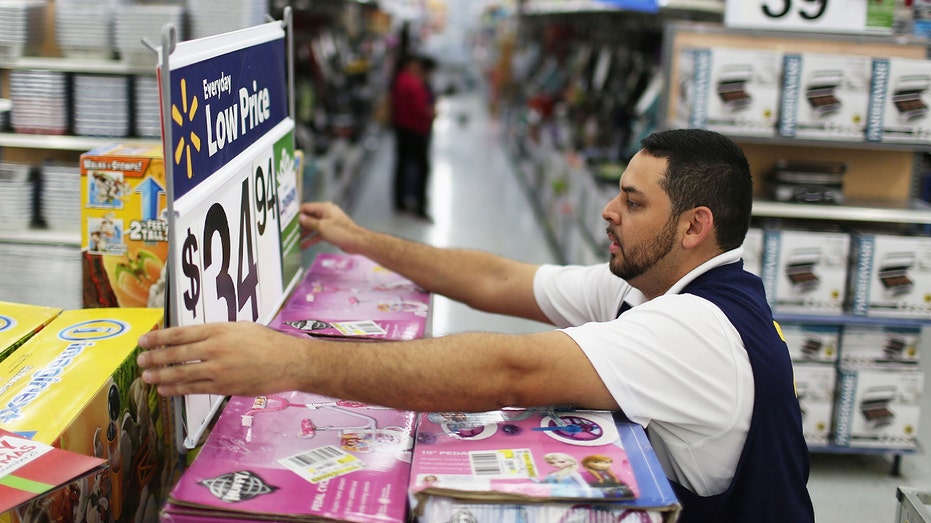Walmart CEO Doug McMillon weighs in on inflation impact on food prices
Fruit and vegetables are 'in pretty good shape,' he said
Big stores including Walmart, Home Depot facing ‘historic’ levels of theft
Former Chrysler Chairman & CEO Bob Nardelli on big nationwide retailers facing historic levels of theft and other crimes.
Walmart’s CEO, Doug McMillon, talked about what the retail giant is seeing in terms of inflation for certain categories during a recent interview.
McMillon told CNBC on Tuesday that dry groceries and consumables are "where we’re seeing the most stubborn and persistent inflation, mid-double-digit inflation." Walmart is "not hearing from our suppliers looking forward that’s going to come down soon."
Those two categories will likely see persistent inflation for some time, he said.

Doug McMillon, chief executive officer of Walmart, speaks during a Business Roundtable CEO Innovation Summit discussion in Washington, D.C., on Thursday, Dec. 6, 2018. (Andrew Harrer/Bloomberg via Getty Images / Getty Images)
"What we’re seeing is that if you take the fresh food categories, commodities, things like proteins, things are starting to move," McMillon also told the outlet. "Chicken right now is more expensive, but beef is down. Fruit and veg is in pretty good shape."
Meanwhile, general merchandise categories "have started to adjust because demand has softened and inflation is adjusting as appropriate," he said.
NOVEMBER INFLATION BREAKDOWN: WHERE ARE PRICES RISING THE FASTEST?
FOX Business reported earlier in the week that inflation, as measured by the Consumer Price Index, cooled slightly, going up 0.1% month over month and 7.1% year over year. Overall food prices increased 0.5% from the prior month and 10.6% from the prior year, with the cost of groceries being up 12% on an annual basis, according to the Labor Department.
The data in the CPI report "doesn’t really surprise us," McMillon told CNBC, adding, "We’re managing this item by item, category by category, and we have a plan and have adjusted our inventory to be ready for this next year."

Walmart’s CEO, Doug McMillon, talked about what the retail giant is seeing in terms of inflation for certain categories during a recent interview. (AP Photo/Sue Ogrocki/File / AP Newsroom)
Walmart’s CEO also offered some of the retailer’s observations about consumer behavior.
"What we’ve seen over the last couple of quarters is a lot of our growth is being driven by customers with more than $100,000 in household income," McMillon said. "That will probably still be the case for some time as people are even more price sensitive."
According to the CEO, that "changes our mix of sales, and it changes what people spend money on – they become more selective in discretionary spending – so we’re merchandising our site and our stores accordingly."

A worker fixes a display at a Walmart store in Miami. (Joe Raedle/Getty Images/File / Getty Images)
ARE HIGHER FOOD COSTS CHANGING OUR EATING HABITS?
During Walmart’s earnings call last month, CFO John David Rainey said high gas prices and food inflation have made shoppers more strict about their household budgets, prompting brand trade-offs in certain categories and "biasing spending toward everyday essentials."
| Ticker | Security | Last | Change | Change % |
|---|---|---|---|---|
| WMT | WALMART INC. | 129.02 | -2.16 | -1.65% |
| COST | COSTCO WHOLESALE CORP. | 997.59 | -3.57 | -0.36% |
Another major retail executive, Costco CFO Richard Galanti, also recently made comments on how inflation is affecting prices.
"In the first quarter, we estimate the equivalent year-over-year [price] inflation number in the range of 6% to 7%," he said during a Dec. 8 earnings call. "Food and sundries is still up more than non-foods. But, overall, a little better level than a quarter ago for the company. And commodity costs are mostly coming down, whether it’s corn, flour, sugar and butter or even some things like steel.
COSTCO UPDATES CORN, FLOUR, SUGAR AND BUTTER COSTS
"A few things are up, but overall, we’re seeing a little bit of a trend, but we’ll keep you posted."




















